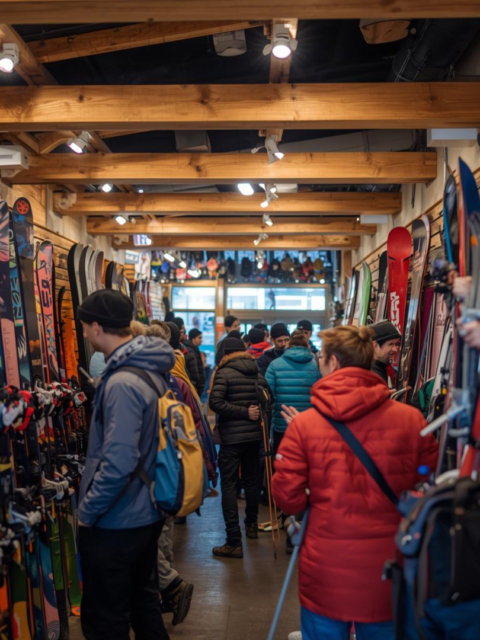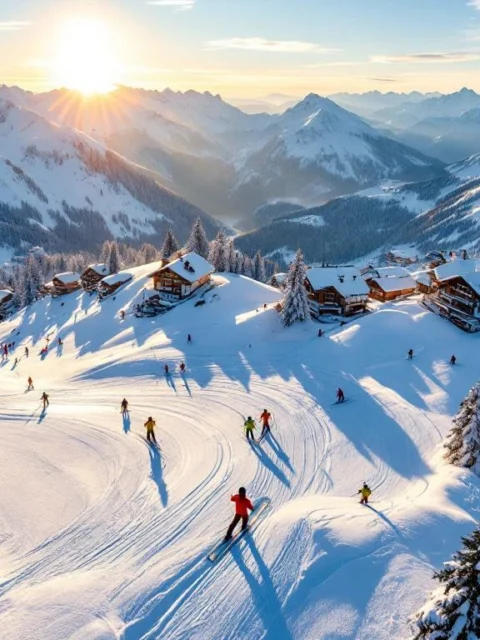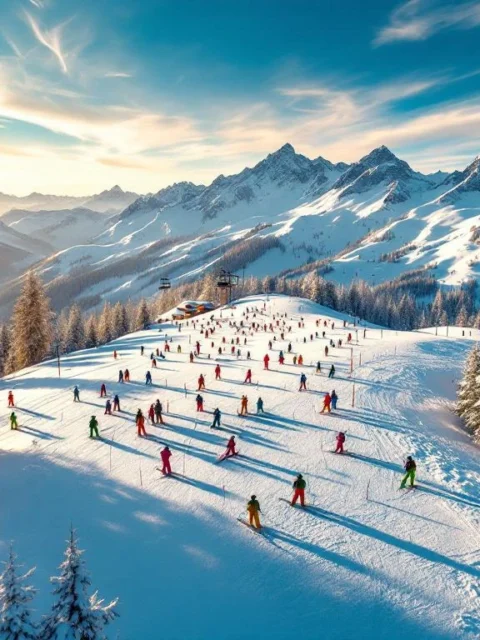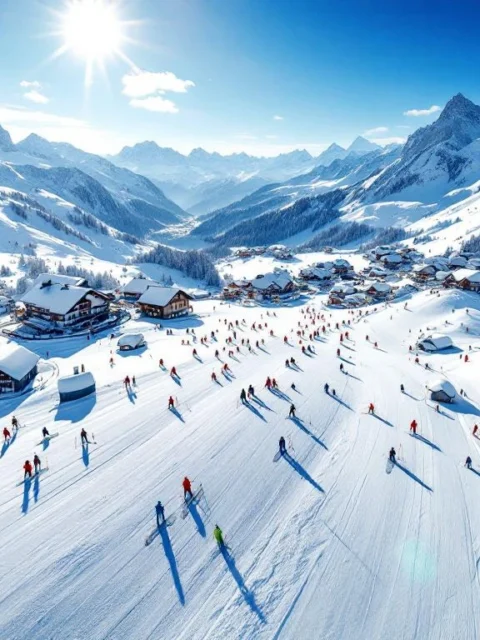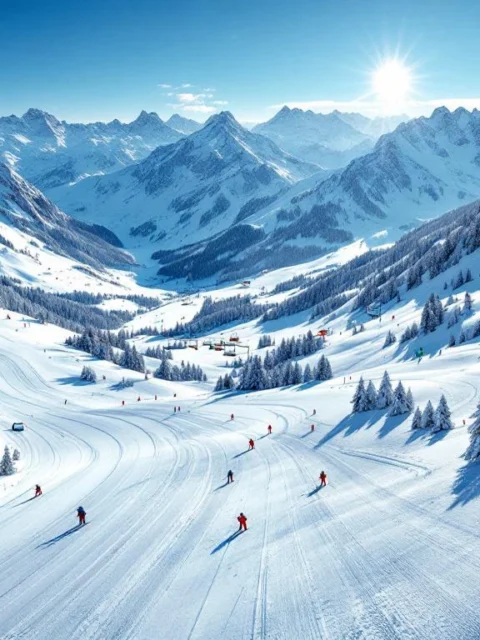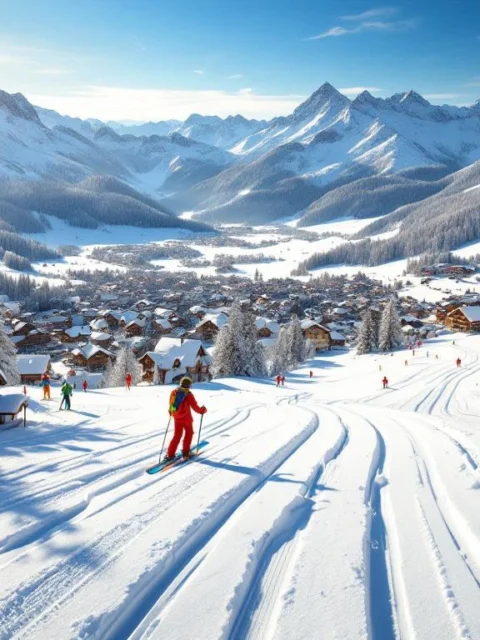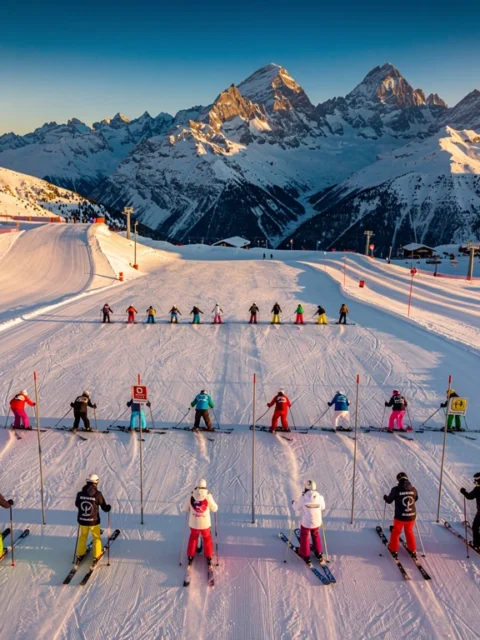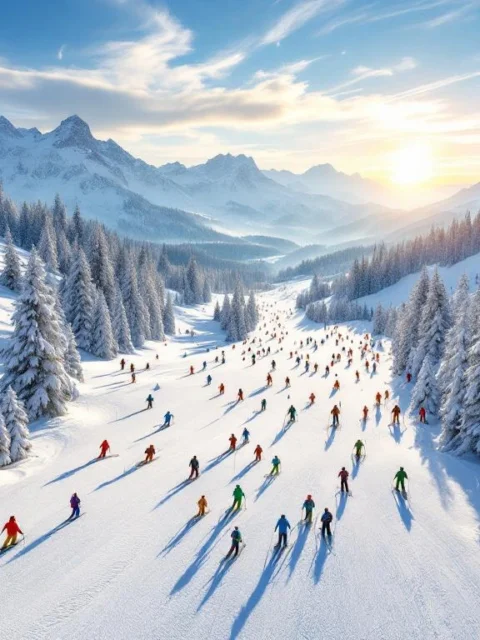Is Switzerland nice in the winter?

Yes, Switzerland is absolutely great in winter! The country offers a perfect combination of reliable snowfall, world-class ski areas, and breathtaking Alpine landscapes. From the glistening slopes in St. Moritz to the charming mountain villages, Switzerland transforms in winter into a true winter fairy tale that makes every snow lover dream.
Why Switzerland is a top destination for winter enthusiasts
Switzerland is known as the heart of the Alps for good reason. Its unique location ensures perfect snow conditions from December to April, while spectacular mountain peaks like the Matterhorn and Jungfrau provide an unforgettable backdrop for your winter vacation in Switzerland.
The accessibility from the Netherlands makes it extra attractive. By train, you can be in the Swiss Alps within a day, without the hassle of airplanes or long car journeys. The efficient Swiss infrastructure ensures that you travel quickly from flat Netherlands to the snow-covered mountain peaks.
Dutch winter sports enthusiasts especially appreciate the reliability that Switzerland offers. While other winter sports destinations sometimes disappoint with green slopes, you can count on Switzerland to have snow when you arrive.
What makes skiing in Switzerland so special?
Skiing in Switzerland means quality at the highest level. Swiss ski resorts are known worldwide for their perfect slopes, ultra-modern lift installations, and unparalleled service. From Verbier to Zermatt, each ski area has its own character but shares the same dedication to excellence.
The professional ski schools in Switzerland are among the best in the world. Whether you’re an absolute beginner or want to refine your technique, the instructors help you with patience and expertise. We work together with more than 250 ski schools throughout the Alps, so you can always find the perfect match for your level and wishes.
The variety of slopes is impressive. From wide, quiet slopes for beginners to challenging off-piste routes for experts. The modern lift systems take you effortlessly to the top, so you spend more time on the slope and less time in line.
What winter activities can you do besides skiing in Switzerland?
Swiss winter offers much more than just skiing. Snowboarding is naturally a popular choice, but also think about cross-country skiing through fairy-tale forests or winter hiking along well-maintained paths with spectacular views.
For those who love speed, sledding is a fantastic option. Many resorts have professional sledding tracks that wind for kilometers through the landscape. Ice skating on natural ice or in modern ice rinks adds a nostalgic touch to your winter vacation.
Wellness plays a major role in the Swiss winter experience. After a day in Switzerland’s snow, you can relax in luxurious spas with breathtaking mountain views. Many hotels offer extensive wellness facilities where you can let your muscles relax in warm baths while the snow falls outside.
Culturally, Switzerland also has much to offer in winter. Traditional Christmas markets, cozy mountain restaurants with local specialties, and charming villages that look like postcards make your stay complete.
How about snow reliability in Switzerland during winter?
Switzerland belongs to the most snow-reliable destinations in Europe. The high elevation of many ski areas, often above 2000 meters, guarantees natural snow from December to April. Glacier ski areas like those near Zermatt and Saas-Fee even offer skiing opportunities year-round.
The Alpine climate provides regular snowfall throughout winter. While other Swiss winter sports competitors depend on artificial snow, Switzerland regularly receives fresh natural snow that ensures perfect slope conditions.
The best period for winter sports in Switzerland runs from mid-December to early April. January and February often offer the best snow conditions, while March and April are ideal for those who enjoy longer daylight and sunny slopes.
Modern snow machines supplement where necessary, but in most cases this is merely a supplement to the abundant natural snow. This makes Switzerland a reliable choice for your winter vacation planning.
Main advantages of a winter vacation in Switzerland
A winter vacation in Switzerland combines reliability with experience. The excellent infrastructure means that trains and lifts always run on time, restaurants offer high quality, and accommodations meet international standards.
Safety is a major plus. Swiss ski areas maintain strict safety standards, slopes are professionally maintained, and rescue services are always ready. This gives you the freedom to enjoy your winter sports adventure worry-free.
The accessibility from the Netherlands is excellent. With direct train connections, you arrive at your destination comfortably and environmentally friendly. No stress with airports or long car drives through the mountains.
Although Switzerland is not the cheapest destination, you get value for your money. The quality of facilities, service, and experiences justifies the investment. Moreover, by smartly comparing between different Swiss ski resorts and ski schools, you can save significantly on your lessons and accommodation.
Whether you’re looking for your first ski lesson or want to perfect your techniques, Switzerland offers the perfect environment. The combination of natural beauty, reliable conditions, and world-class facilities makes every winter vacation in Switzerland an unforgettable experience that will stay with you for a long time.


